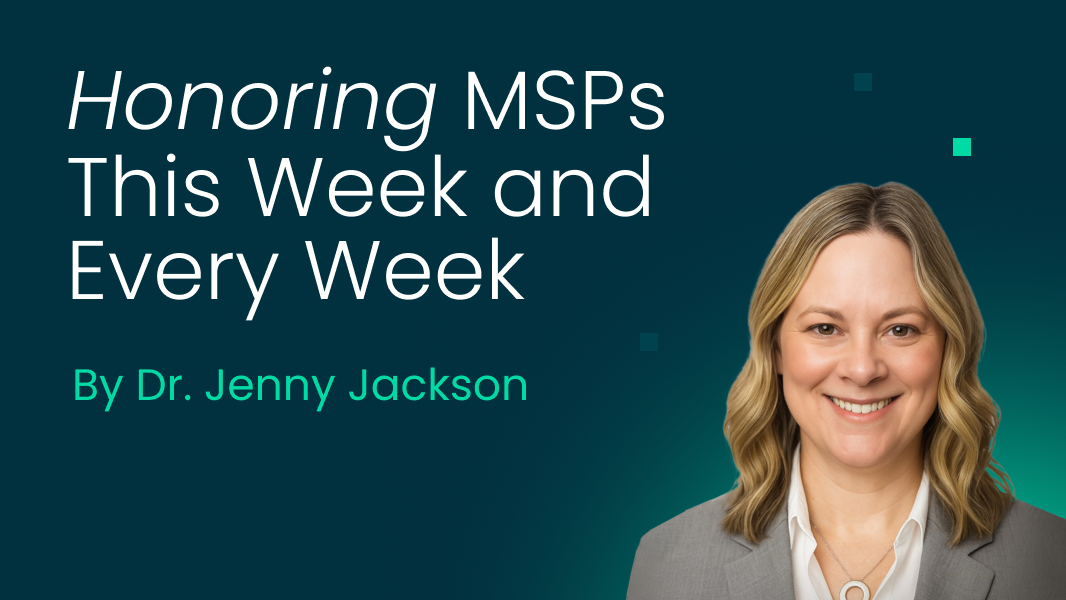Why We Do What We Do
Most people don’t grow up dreaming of working in credentialing. I know I certainly didn’t. In fact, I had never heard of the field before I landed here, but once I started learning to prepare and process files, I was hooked. As a detail-oriented person, I found the investigation and organization to be extremely satisfying. There’s just something deeply fulfilling about work that lives behind the scenes but makes a tangible impact.
What we do is far more than paperwork. It requires empathy, attention to detail, and the ability to translate complex payer requirements into workflows that make sense. And at its heart, it’s about people. Providers trust us with their livelihoods, colleagues depend on our accuracy, and the patients who will never know our name benefit from our diligence.
The Impact MSPs Make on Healthcare
The work of MSPs touches nearly every corner of healthcare. Without us, providers can’t practice, facilities can’t operate, and patients face unnecessary delays in access to care. Every provider we credential, every enrollment we complete, and every process we refine connects directly to patient care. We are the invisible link between a provider’s calling to practice medicine and an organization’s ability to deliver care. When MSPs do their work well, the entire healthcare ecosystem functions more smoothly.
The irony is that because we do our jobs so well, our impact often goes unnoticed. The smooth onboarding, the quick turnaround, the avoided compliance issue — these are the quiet victories that happen daily because of an MSP’s skill and persistence.
The Challenge and the Calling
Credentialing and enrollment aren’t for the faint of heart. We work in an industry where the rules can and do change overnight, so we must constantly be on our game. We are regularly navigating NCQA or CAQH updates, payers launching new portals, Medicare updating enrollment rules, and states changing Medicaid requirements without warning.
To thrive, you have to be adaptable, resilient, and endlessly curious. You have to love solving problems that don’t always have easy answers. Over the years, I’ve learned that real stability doesn’t come from doing things the same way, it comes from embracing change. Every new challenge is an invitation to innovate, streamline, or strengthen a process.
Building Systems That Support People
People are at the center of everything we do. Whether it’s a provider waiting to see their first patient, a payer balancing compliance, or a specialist managing hundreds of files, people are the constant.
Efficiency isn’t just about the speed of credentialing or provider network growth; it’s about sustainability and team happiness. I’ve seen too many teams burn out under outdated systems and unclear expectations. My passion lies in creating clarity and calm by designing workflows that let talented people spend more time doing thoughtful, high-value work and less time chasing missing pieces.
When we build systems that support people, we create workplaces that inspire loyalty, pride, and purpose.
How Leaders Can Recognize and Support MSPs
Leaders play a vital role in shaping how MSPs experience their work. Recognition doesn’t always require grand gestures. Sometimes, it’s simply acknowledging the complexity and importance of what MSPs do.
Here are a few ways leaders can better support their teams:
- See the value behind the work. Credentialing and enrollment may look procedural from the outside, but it’s high-stakes, people-driven work. Recognize it as such.
- Invite MSPs to the table. Their insights can prevent downstream problems in provider setup, payer relations, and compliance.
- Invest in systems and training. Modern tools and continued education reduce burnout and elevate performance.
- Celebrate wins, both large and small. Every approved enrollment, every streamlined process, every audit success matters.
- Foster connection. Encourage your MSPs to share ideas, collaborate, and mentor one another. Community strengthens resilience.
When leaders create space for recognition and growth, they don’t just support their teams, they elevate the quality and reliability of healthcare itself.
A Career of Purpose
Being an MSP isn’t just a job, it’s a mindset. It’s about balancing empathy with accountability, persistence with patience, and process with purpose. It’s understanding that what we do matters, even if it’s not always seen. It’s knowing that our quiet diligence keeps the healthcare engine running smoothly.
What inspires me most is the community around this profession — the people who share stories, frustrations, and triumphs. We lift each other up, knowing that while our work is often unseen, it’s never insignificant. That sense of purpose is what keeps so many of us in this field year after year.
After decades in this industry, what stands out most to me isn’t the systems or the spreadsheets — it’s the people. The providers who trusted me to help them begin their journey. The teams who worked beside me through audits and implementations. The payers who collaborated toward shared goals.
This work has taught me resilience, adaptability, and the importance of staying curious. It’s shown me that leadership isn’t about being loud. It’s about being kind, consistent, and committed to making things better.
And it’s reminded me, time and again, that what we do matters.
Honoring MSPs This Week and Every Week
As we celebrate MSP Week, let’s take a moment to thank the professionals who make healthcare work. The ones who verify, validate, and advocate. The ones who quietly ensure that patients can see the right providers at the right time.
To every MSP: your work matters more than you know. You are the heartbeat behind the process and the steady force that keeps healthcare moving forward.
Here’s to you, this week and every week.

.svg)




